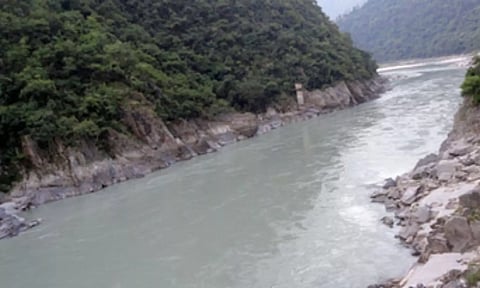

KATHAMANDU: Nepal and India have agreed to complete the detailed project report (DPR) of the much-talked Pancheshwar Multipurpose Project within three months.
The project is a major arm of the Mahakali Treaty signed in 1996 that is expected to produce 6,400 megawatts of energy.
But due to differences between the two sides, a joint panel of experts failed to reach an agreement to complete the DPR.
An understanding was reached during a meeting of the governing council of the Pancheshwar Development Authority held in Pokhara on Thursday and in Kathmandu on Friday.
The meeting also decided to activate the expert group by extending the deadline to resolve the dispute within three months, according to the statement issued after the meeting.
This is the first move towards concluding the DPR after the prime ministers of both countries last month agreed to conclude the the report within three months during Prime Minister Pushpa Kamal Dahal’s India visit from May 31 to June 3.
Earlier, the term of this expert group was to end in March 2023.
India’s state-owned Water and Power Consultancy Services (WAPCOS) Ltd had submitted the DPR draft in 2016 after merging separate project reports prepared by both countries.
Four years after the third meeting of the team of experts held in Kathmandu in February 2019, the two sides have now agreed to hold a fourth meeting.
During Dahal’s visit to India, it was agreed that officials of both governments would expedite bilateral discussions towards early finalisation of the DPR within three months.
Nepal’s Energy Secretary Dinesh Ghimire and India’s Water Resources Secretary Pankaj Kumar had led the talks from respected sides.
Besides extending the deadline of the expert panel, the meeting also decided to appoint officials from respective sides.
It has been agreed that both the countries will invest in this project on the basis of water sharing.
However, there is a dispute between the two countries on how to share the water benefits. It has not been decided who will invest in the project.
Nepal has been saying that India should invest heavily as India’s profit share in irrigation is large, based on the benefits of irrigation and electricity.
However, India is in a position to invest without considering profit.
Apart from generating electricity, the project will provide irrigation to 130,000 hectares of land in Nepal and 240,000 hectares in India in addition to other incidental benefits including flood protection.